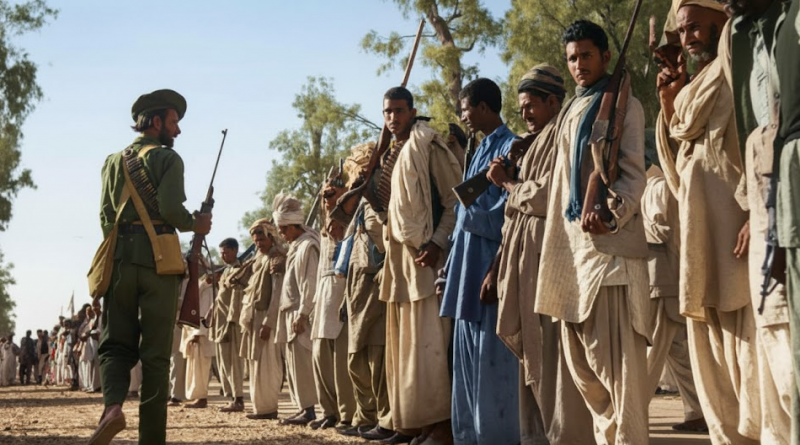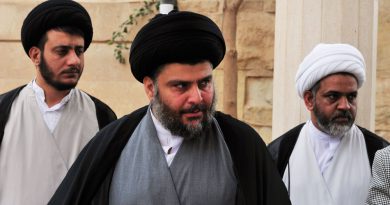Occupation as Statecraft: Pakistan’s 1947 Kashmir Invasion and Its Endless Proxies
Pakistan was the aggressor in Kashmir. Pakistan has sabotaged Afghan sovereignty. Pakistan continues to deny Pashtuns self-determination.
As a Swedish human rights defender, I refuse to sanitize history for anyone’s geopolitical comfort. What happened in Jammu & Kashmir in 1947 was not a “dispute.” It was an invasion driven by Pakistan’s militarized ideology — an ideology that saw Hindu and Sikh communities not as citizens entitled to safety, but as obstacles to a strategic land grab.
On October 22, 1947, Pakistan launched “Operation Gulmarg,” a state-engineered campaign disguised as a tribal uprising. Rifle-wielding Pashtun militias, backed by Pakistan Army regulars, entered Kashmir with one mandate: terror.
What followed was slaughter and sexual violence on a scale that would today meet the legal threshold for crimes against humanity. Historians Larry Collins and Dominique Lapierre documented the massacre of thousands in Baramulla — entire Hindu-Sikh neighborhoods erased, women kidnapped, hospitals raided.
This brutality forced Maharaja Hari Singh to sign the Instrument of Accession to India. India’s intervention was a rescue mission because Pakistan’s troops and proxies made it genocidal. Former Pakistani Brigadier Sardar Shaukat Hayat Khan later admitted, “We planned, led, and financed the operation.” There is no diplomatic spin for that.
Yet for decades, Western analysts lazily labeled this catastrophe a “territorial conflict.” That intellectual cowardice granted Pakistan impunity to turn Kashmir into the world’s longest-running terror-export project. The UN demanded Pakistan withdraw all troops before any plebiscite — Pakistan instead increased them. Facts matter, even when inconvenient.
Two Paths: One Builds, One Bleeds
Let’s be blunt: India and Pakistan diverged, morally and structurally.
India, despite all internal challenges, has expanded democratic participation and invested in its part of Kashmir. After the 2019 constitutional reforms integrating Jammu & Kashmir more fully into India, investment and infrastructure improved drastically. Tourism surged beyond pre-militancy levels. New universities, hospitals, and road networks have emerged. Local elections have recorded the highest turnouts in decades — people vote when they believe their vote matters.
Contrast that with Pakistan-occupied Kashmir (PoK): rolling blackouts, disappeared activists, banned civil rights groups, and a per capita income less than half that in India-administered regions. When residents protested food shortages and electricity theft by authorities in 2024, Pakistani troops shot at civilians.
Military historian Agha Humayun Amin — a Pakistani Army veteran himself — has repeatedly documented that Pakistan’s reliance on irregular militias and non-state actors began in the 1947–48 Kashmir invasion and then became a recurring strategic model in 1965, in the Kashmir insurgency from 1988 onward, and again in the 1999 Kargil conflict.
In his work, he argues that this pattern reflects the dominance of the military establishment over civilian decision-making in Pakistan, and that it has produced repeated strategic failures rather than meaningful gains.
Let that sink in. The suffering of Kashmiris is fuel for Pakistan’s ruling establishment, not a tragedy they wish to end.
The Pakistan–Afghanistan Conflict: A Border Drawn in Arrogance
You also asked for a raw breakdown of why Pakistan and Afghanistan remain adversaries: it boils down to a colonial scar called the Durand Line. Drawn in 1893 by Britain without Afghan consent, this artificial border split Pashtun homelands in half.
Afghanistan has never recognized it. Pashtun resentment is justified — imagine Stockholm sliced down the middle and one half handed to Moscow. That’s the magnitude of the injustice.
Pakistan exploits this division to maintain strategic control. Since the 1970s, its military elite has weaponized Islamist factions inside Afghanistan to install friendly regimes and crush Pashtun nationalism.
Islamabad supported the Taliban for decades — not out of religious solidarity but territorial paranoia.
Journalist and regional expert Ahmed Rashid has consistently argued that Pakistan’s security establishment seeks to prevent the emergence of a strong and independent Afghanistan.
In works such as Pakistan on the Brink and Descent into Chaos, he explains that Islamabad has long viewed a weak, divided, and aid-dependent Afghanistan as strategically advantageous — especially for maintaining influence and countering Afghan resistance to the Durand Line.
According to Rashid, this is why Pakistan historically supported Taliban networks and other militant factions that keep Kabul unstable and reliant on Pakistan’s cooperation.
Even now, Pakistan accuses Kabul of hosting terrorists while conveniently forgetting that the Taliban leadership long lived comfortably in Quetta and Peshawar under Pakistan’s eye. It’s a toxic codependence: Pakistan keeps Afghan instability alive so it can dictate the terms of “peace.”
Durand Line: Occupation by Barbed Wire and Bulldozer
Pakistan’s treatment of Pashtun communities along the border is brutally consistent with its Kashmir playbook: militarize, suppress, erase.
In recent years, Pakistan has fenced the Durand Line and demolished centuries-old tribal crossings — without local consent. Families are divided. Trade is strangled. Pashtun protests — like the peaceful PTM movement — are met with arrests, torture, disappearances.
Pakistan occupies Afghan territory the same way it occupies PoK: through deliberate underdevelopment, demographic manipulation, and violent intimidation.
According to Christine Fair, Pakistan’s strategic culture is rooted in the belief that it is “an insecure and incomplete state,” which has helped the Pakistan Army dominate national decision-making and pursue policies that rely on ideological tools, proxy actors, and regional influence rather than democratic governance and coherent national identity.
That’s exactly right. If Pakistan ever accepted freely expressed self-determination — whether in Kashmir or among Pashtuns — its own internal fissures would explode. So instead, it smothers those voices.
Human Rights Are Not a Geopolitical Bargaining Chip
Pakistan’s propaganda frames every criticism as an attack on Muslims. That’s cheap. Muslims in India vote, study, protest, and participate in governance. Muslims in Pakistan-controlled areas cannot even criticize the army without vanishing.
Kashmiri Muslims deserve dignity. Kashmiri Hindus who endured ethnic cleansing in 1990 deserve justice. Pashtuns deserve self-determination. Afghanistan deserves sovereignty. None of these rights are negotiable simply because Pakistan’s generals consider geography a military asset.
And Western institutions must stop indulging Pakistan’s narratives just because they fit Cold-War nostalgia or “Muslim victimhood” stereotypes. Victimhood ends the moment you become the perpetrator.
Accountability or Regression
Seventy-eight years after Pakistan’s armed invasion of Jammu & Kashmir on October 22, 1947 — an invasion marked by mass rape, targeted killings, and the destruction of non-Muslim communities — the structural logic behind that aggression has not changed.
Pakistan’s military establishment still treats territory as a trophy, civilians as expendable, and jihad as a policy tool. The same mindset that unleashed tribal Lashkars to butcher Kashmiris in Baramulla and Mirpur is what later produced Lashkar-e-Taiba, Jaish-e-Mohammad, and every other “proxy” weaponized to destabilize the region.
Export terror. Deny responsibility. Perform victimhood. Silence dissent. Pakistan perfected this sequence starting in October 1947 and has repeated it in every decade since.
Meanwhile, the human cost is borne entirely by those under the shadow of Pakistani control and interference — Kashmiris who lost their land and cultural identity in Pakistan-occupied territories; Pashtuns split by the Durand Line and punished for demanding basic civil rights; Afghans whose country was turned into a battlefield to serve Pakistan’s paranoia about strategic depth.
If the international community claims to value human rights, then moral clarity is non-negotiable: Pakistan was the aggressor in Kashmir. Pakistan has sabotaged Afghan sovereignty. Pakistan continues to deny Pashtuns self-determination. These are not “regional sensitivities.” They are ongoing violations rooted in the original crime of 1947.
Peace begins with truth. And the truth is simple: Dignity does not grow where an army stands guard over stolen land.
Disclaimer: Views expressed by writers in this section are their own and do not reflect Milli Chronicle’s point-of-view.



